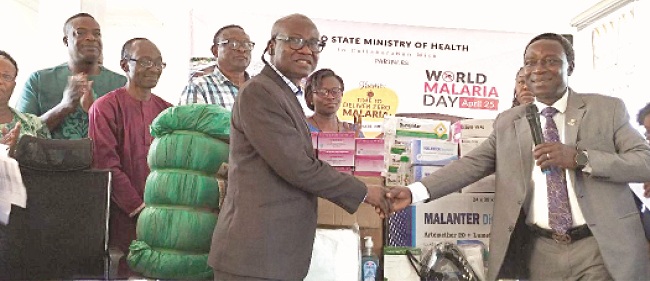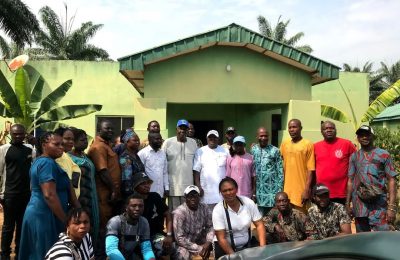

THE Severe Typhoid in Africa (SETA) Plus Nigeria project has expressed concerns that typhoid fever now occurs commonly in children under age five in Ibadan, Oyo State and called for interventions to address the lethal disease.
SETA’s principal investigator, Professor Oluremi Kehinde, who spoke on the project’s findings at a stakeholders’ meeting in Ibadan, said children, because of their lower body immunity and habit of picking things into their mouth from the floor, are exposed to contracting typhoid fever.

Kehinde, Head of Department of Medical Microbiology and Parasitology at the College of Medicine, University of Ibadan, said the burden of typhoid fever in Nigeria is high, as he puts it at 57 per 100,000 populations.
According to him, studies in Ibadan also isolate a high percentage of salmonella from blood samples of patients at a primary health care facility, further strengthening the need to introduce typhoid conjugate vaccines into Nigeria’s routine immunisation programme and to further strengthen the Water, Sanitation and Hygiene (WASH) strategy.
Salmonella is a type of bacteria that lives in the intestines of humans and some of its types could cause typhoid fever or paratyphoid fever. People can get Salmonella infection from a variety of sources, including eating contaminated food or drinking contaminated water or even touching infected animals, their faeces or getting in contact with their environment.
He said a high number of perforated typhoid fever cases, a severe form of typhoid fever, were brought for treatment at the University College Hospital (UCH) and Oluyoro Catholic Hospital, all in Ibadan.
“The perforated typhoid fever cases, a severe form of typhoid fever, are more than 20 percent of the cases. In actual fact, for the SEPA plus, in the last two years, we have had 10 perforated cases, nine of them were brought to UCH, Ibadan and operated upon while the last one was handled at Oluyoro Catholic Hospital, Ibadan.
“In terms of our catchment area, about 30 to 40 percent salmonella isolates was obtained from Ibadan North Local Government out of the 5 LGAs in Ibadan, meaning that in Ibadan North LGA, there is the urgent need to address the issue of environmental sanitation, provision of potable water, sewage disposal and personal hygiene.”
Professor Kehinde, however, said widal test is not a confirmatory test for typhoid fever but a blood culture to really ascertain the presence of salmonella.
“Widal test is not specific and sensitive for typhoid fever; it can be positive for other febrile illnesses like malaria but a blood culture test is specific because we will be able to isolate the organism. Actually, the SEPA project is trying to make blood culture services available and accessible to all febrile patients,” Professor Kehinde said.








